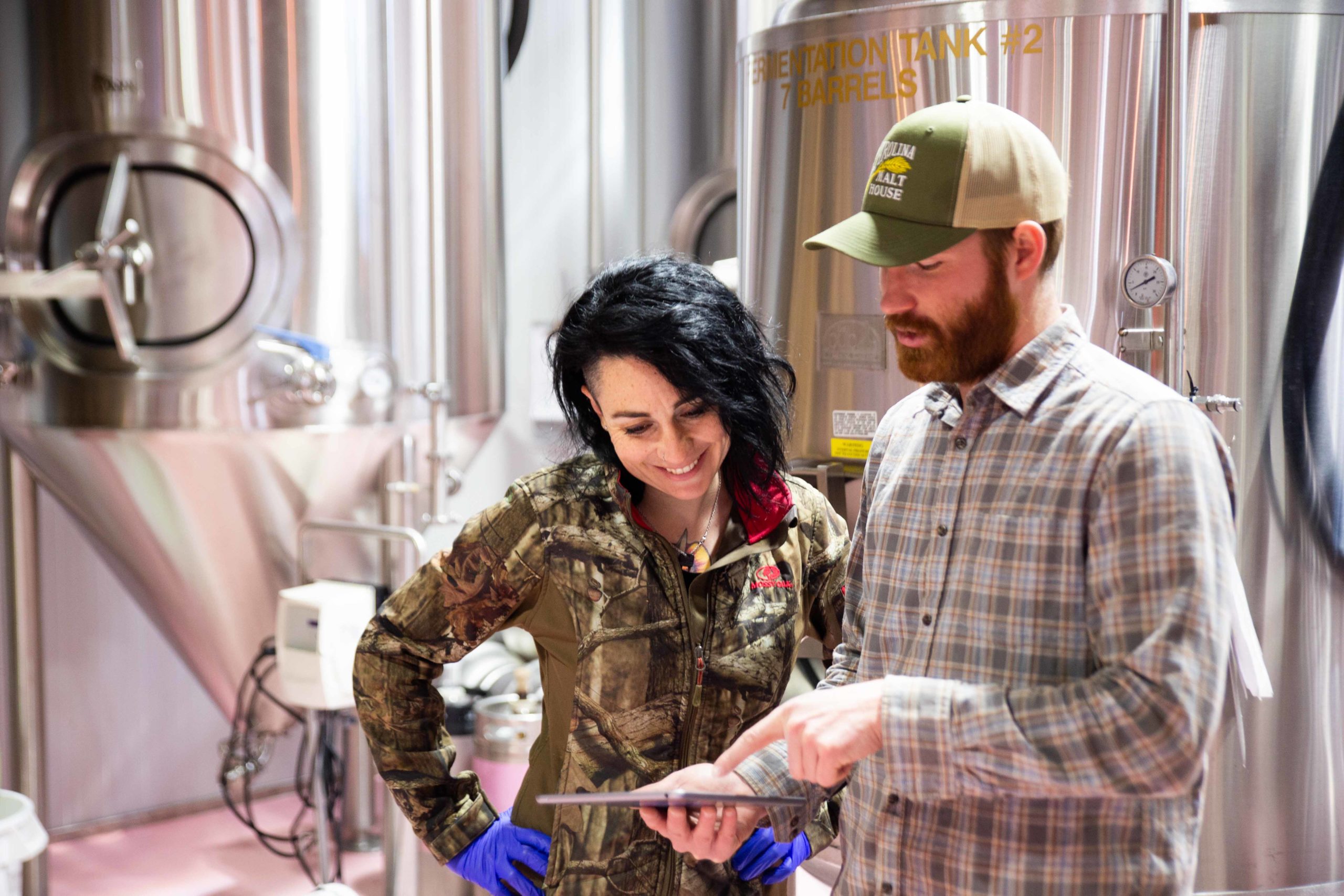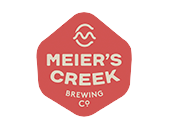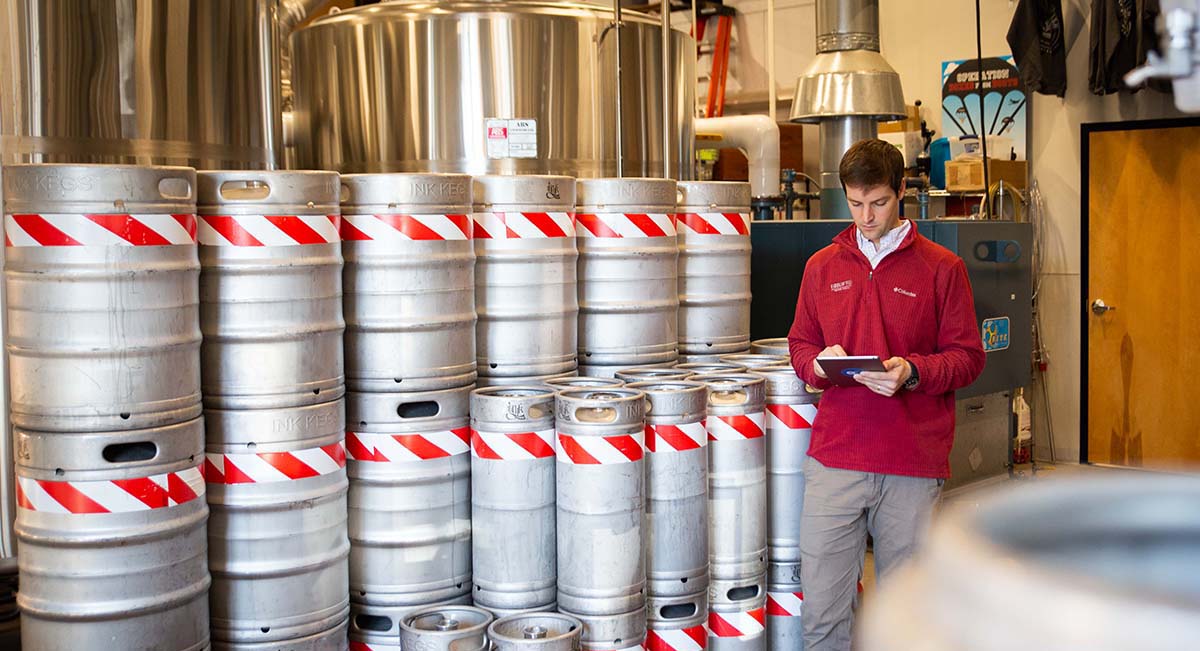As a business owner, you’re always on the hunt for ways to improve your business. Whether it’s a new pint glass or a bigger brite tank, the possibilities are endless. Technology is one of many ways you could bring modernity, organization, and efficiency to your brewery.
Technology can empower you and your team to develop new standard processes, save money by getting a handle on your brewing data, and so much more. A common misconception, however, is that tech is only for the big guys. The reality? Technology is going to look different at every stage of growth. Just as the ingredients you need or the space your business lives in might change as you grow, so will your technology.
Spreadsheets and sticky notes scattered across your brewery might work in the beginning, but in the long run, they are just going to hold you back from achieving your goals.
No matter your size, technology is a helpful, and in many cases essential, part of your brewery business. According to our 2022 Building a Tech Stack Report for breweries and cideries, 67% of producers we surveyed would grade their technology use an A or B — can you say the same?
After our survey results rolled in, we were lucky enough to chat with a few producers one-on-one. We selected a small, medium, and large brewery to understand how technology use can make an impact in businesses of all sizes. Here are three of their stories:
Small Brewers Grow With Technology
Monkless Belgian Ales is a 1,200 bbl producer located in Bend, Oregon. The team at Monkless is highly focused on using technology to bolster their business, and owners Robin and Todd Clement brought Ekos on before they even opened their doors in 2016.
Monkless has a varied tech stack and uses Ekos as the platform to support it all. From recipe and production tracking to POS and distribution software solutions, the Monkless team’s tech stack connects all facets of the business. This is something that Robin says gives the brewery a competitive advantage compared to others their size.
Without technology, Robin’s sales team would be shuttling back and forth from accounts to update invoices, clarify inventory, and get signatures; however, their tech stack allows the team to be more efficient on the go, keeping customers happy and inventory up-to-date. “We’re definitely more agile on the road with mobile apps and creating and adjusting invoices on the fly,” Robin said.
Best Practices for Small Brewers
- Remember: You’re never too small to seek out technology for your business — it can help even the smallest teams work more efficiently.
- If you’re having trouble deciding where to spend your money, create a list of priorities and seek out multipurpose business management solutions.
- Ask for feedback from your team when demoing a product. After all, they’ll be using the tech most often and can let you know whether a solution is intuitive.
Saving money is not generally associated with bringing new products on to help your business; however, Monkless shows that this doesn’t need to be the case. The brewery uses QuickBooks integrated with Ekos to manage their accounting data, meaning Monkless’s bookkeeper only needs to work for the brewery part-time, saving them money. “Without Ekos, there would be a heck of a lot of data entry and a lot of disconnect,” Robin said. “It’s how we ensure invoices are paid. Having QuickBooks sync means that our off-site bookkeeper can work less and get more because our numbers are automatically organized.”
“Other breweries our size are likely not quite as far along in that technology realm as we are and not leveraging the tools completely the way that we do, which has been really eye-opening. I just don’t see any other way to do it,” Robin said.
Tech-Assisted Production Bump for Mid-Sized Brewer
Aaren Simoncini is the CEO of Beer’d Brewing, a Connecticut-based brewery that produced 5,500 bbl of beer in 2021. Their doors opened 10 years ago, and the business has evolved a lot in those years, leading to a more sophisticated tech stack that allows the team to do more, produce more, and improve the accuracy of their inventory and tax record-keeping.
Being a mid-sized brewery means lots of change and adjustments — those are just growing pains. “As we’ve grown into self-distribution and produced more, our technological needs have gotten more complex,” Aaren said. “Being sure that our inventory and tax record-keeping is accurate is paramount, which is why we’ve grown our tech use over the years.”
Best Practices for Mid-Sized Brewers
- Look for a solution that will grow with you. This middle stage requires flexibility, so you should invest in scalable solutions.
- Lean into your strengths. If you’ve made it to this point, you’re probably doing something right. What is it? Use this information to pick tech solutions that bolster your strengths.
- Similarly, what tech can help make up for your weaknesses? As a famous singer once said: “nobody’s perfect.” Pinpoint the areas where you need help and find tools that can help pick up the slack.
Beer’d added a second taproom in the last year and has two production facilities, meaning the team needs to make sure the pieces of their tech stack are complex enough to keep tabs on each facility and simple enough to work together. Speaking of working together, Beer’d integrates QuickBooks Online with Ekos. “The fact that Ekos interfaces directly with our accounting system — it’s the only way to do it,” Aaren said.
The team also uses their tech stack to its full capacity when it comes to making data-driven decisions. The quality of data that Aaren has gotten from Ekos has literally changed the way he runs his business — and he’ll never go back. “I don’t think that I could ever live without this level of granular reporting,” Aaren said.
More Data, More Growth for a Large Production Brewery
Monday Night Brewing is one of the top-producing craft producers in the country — with four locations across four states. Sales Analyst Jaclyn Turner says that gaining data from and streamlining communication with their tech solutions is why they’ve found success in the competitive craft beer space.
Jaclyn has her hands in most parts of the business: sales, marketing, and production. She says using data to measure how your product and business are doing is great, but being ahead of that reporting is even more important for Monday Night Brewing. The team takes in data from grocery stores and other retailers to “have their finger on the pulse,” Jaclyn said.
Without tech solutions like Ekos and iDIG, this level of data wouldn’t be accessible. Tech makes it happen. “I don’t know that I could do my job without Ekos,” Jaclyn said. “I’m in it every day. Having purchase orders, inventory, sales, and accounting flowing through one system makes Ekos like the middle hub in a big wheel — keeping everything together — as our business grows.”
Best Practices for Large Breweries
- Lean into business intelligence and analytics. Use technology to track your product’s lifecycle and make data-driven decisions based on key metrics.
- Get the integration. When you bring on complementary tools that can integrate, take advantage of the connection. It will improve visibility across your business and cut down on manual data entry.
- Consider communication. As your production grows, so will your team. It’s important to invest in tools that help your team work more efficiently together — even when they’re in different locations.
Ekos gives Jaclyn and her team the freedom to execute tasks when they’re apart and keep every member of the team on board. From warehouse associates to the sales department, Jaclyn says using Ekos to track and communicate sales orders, goals, and achievements across teams puts Monday Night ahead of the competition. Ekos, which Jaclyn calls their “best friend,” hosts sales data that drive decisions in the business and give her team the knowledge they need about customers, their preferences, and what’s selling to make decisions elsewhere. When Jaclyn plugs invoices into Ekos, the warehouse team can see what orders they need to pull and when — eliminating the need to call her up and write out details, because it’s all in Ekos.
Jaclyn uses iDIG insights in VIP to predict what her distributors will need 30, 60, or 90 days out at all times. These insights from VIP help the brew team predict how much they need to make of a certain beer, especially their more popular offerings, and they are able to leverage that data in Ekos to appropriately manage their inventory. Using this data means customers are happy their favorites are in stock and Monday Night is happy they can use their resources as effectively as possible.
No matter your size, technology can help your brewery become more efficient, boost production, grow your team, and so much more. To learn how Ekos can help with these goals, reach out today.





